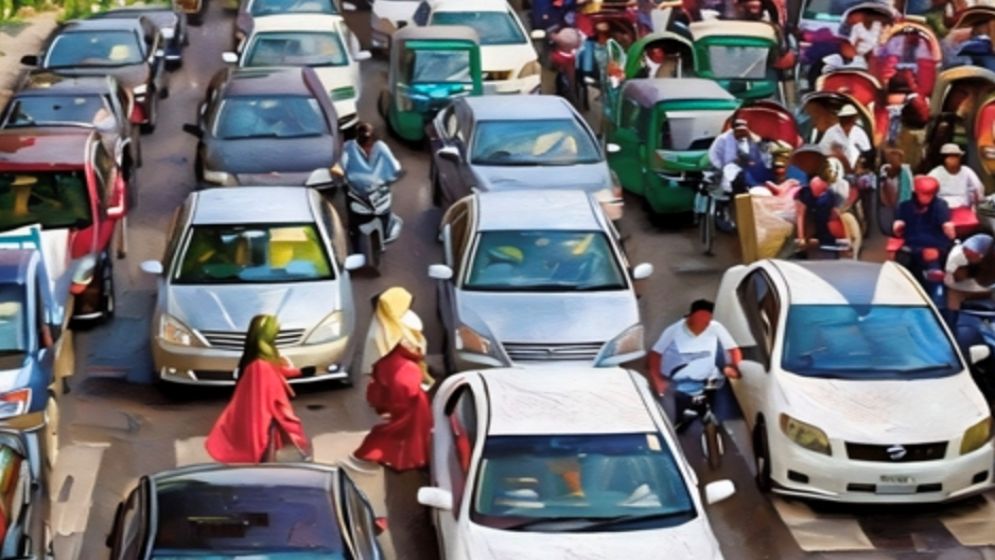Private cars in Dhaka: A desirable luxury with undesirable socio-environmental costs
Yusuf Banna
Publish: 11 Jul 2024, 02:38 PM

As Dhaka residents, and perhaps even as Bangladeshis, we've arrived at a crossroads where personal car ownership, without specific justifications, should be viewed as morally questionable, if not outright wrong.
Dhaka's dire traffic and undeniable air pollution crisis demand a collective reevaluation of car ownership as a luxury, not a necessity.
This is particularly true when a car is used solely for one person's commute. While pollution stems from various sources, including our reliance on fossil fuels, industrial practices, and irresponsible construction, vehicle use is one area where a significant portion of the educated population can directly control their impact.
Unlike those who rely on buses or whose livelihoods depend on construction—where environmental consciousness may be hindered by circumstance or lack of awareness—car owners have a choice.
Let's be frank, the middle to upper middle class in Dhaka: you understand the severity of the situation. You know Dhaka's traffic congestion and toxic air quality are largely due to the sheer volume of private cars—cars owned by people like you.
This is despite the fact that the majority of Dhaka's residents fall outside your socioeconomic bracket and rely on the city's inadequate public transportation system. Logically, most people in Dhaka cannot afford the luxury of a private car.
Yet, it's understandable why you, who can afford such "luxuries," would choose them. There are seemingly no viable alternatives.
As mentioned, public transportation in Dhaka is subpar, overcrowded, and unreliable. Commutes often require hours of planning, with no guarantee of timely arrival. Yes, the arrival of the metro has given a big respite but it still serves a little fraction of the Dhaka residents.
If you can afford a private car, why wouldn't you choose comfort and convenience? After all, you've worked hard and shouldn't sacrifice your peace of mind to an unreliable system.
CNGs are no better, with their haggling and unpredictability and UBER has become uber expensive these days. A private car offers the freedom to travel at will, with the added security of a reliable backup.
Think of your family, your sons who deserve a stress-free commute, and your daughters who need protection. Why risk their safety and well-being for the sake of Dhaka's collective benefit?
Here's the question we must confront: what price are we willing to pay for the greater good? In Dhaka's case, it may involve sacrificing some luxuries. I'm not exempt from occasionally indulging in these luxuries or lacking the courage to fully embrace change.
But when our vehicles clog streets, pollute the air breathed by the working class, and strangle the city, we must challenge the culture of vehicular excess. Yes, we value the "freedom" that capitalism affords, which enables our possessions, but perhaps we should strive to minimize the excess we've inflicted upon our cities.
We're quick to blame the West for global warming, while countries like Bangladesh suffer the consequences. Yet, we must acknowledge that our cities mirror those same patterns of behavior.
If we prioritize our capitalistic rights and disregard the majority, as developed nations often do at COP summits with empty promises, then we are no better. We must strive to be better citizens, as our current behavior lacks moral justification. While the issue is complex, the air we breathe isn't. Its quality is a clear indicator of our actions' consequences.
—
Yusuf Banna is a journalist and poet
